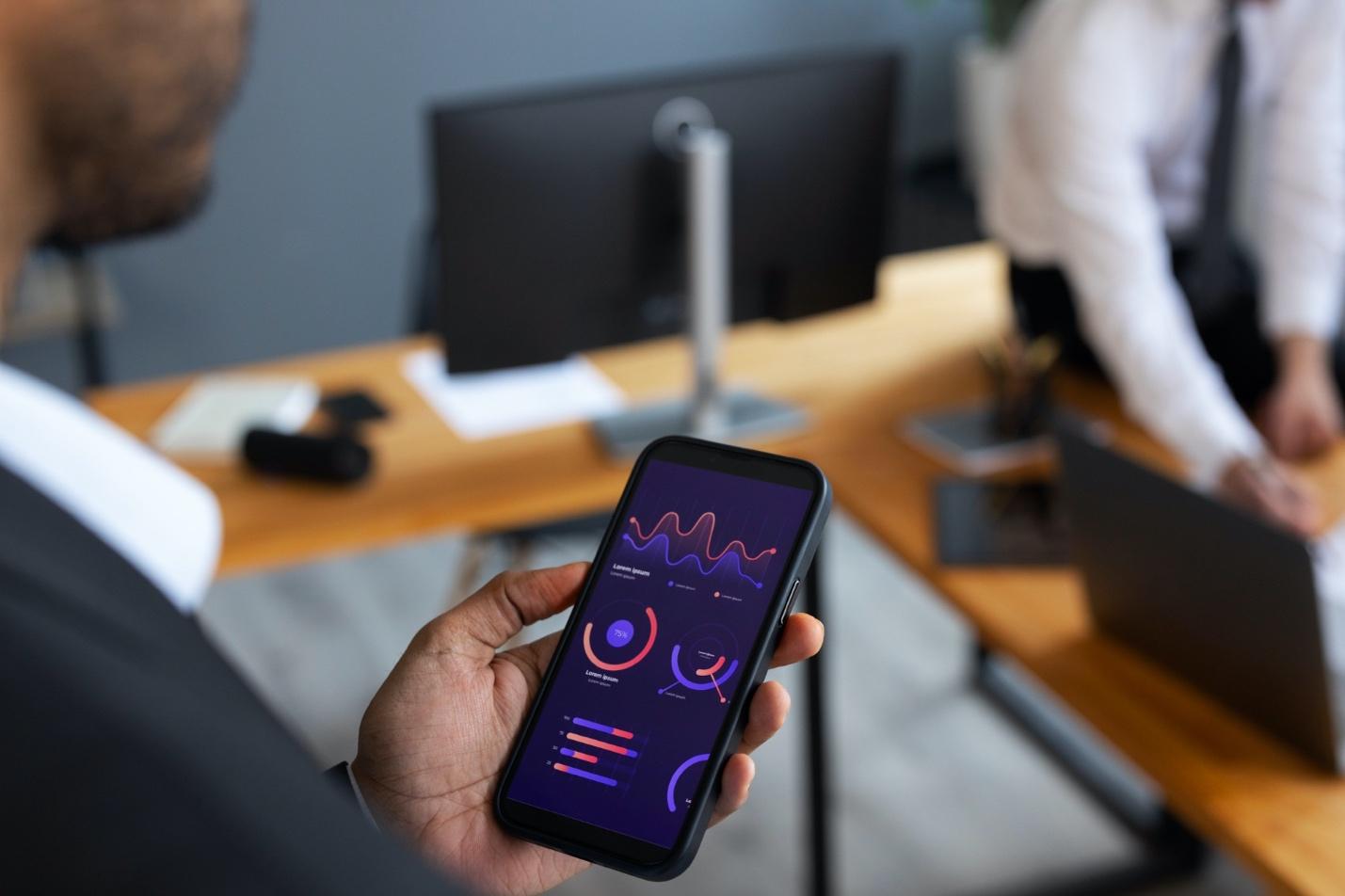Capturing Unmonitored Calls: SeaMeet Dashboard in Hospitals
If you’re in hospital administration, then you certainly understand the importance of call management. Calls that are not received or attended to create critical gaps in patient servicing and care. The SeaMeet Dashboard provides a better oversight need by facilitating access to inbound call data and resolving care facility inadequacies.
Calls that come from patients, departments, or outside providers are frequently left unchecked in many hospitals and pose multiple risks for patient inquiries, emergency coordination, and compliance standards that the facility needs to adhere to. The SeaMeet Dashboard helps reduce unmonitored calls in hospitals, therefore meeting the objectives of improving operational workflows as well as communication quality within the hospital.

How Voice AI Analytics Is Transforming Hospital Communication
In modern healthcare settings, effective and instantaneous communication is more than just a luxury, it is a prerequisite. Every hospital manages hundreds, if not thousands, of phone calls daily. Without any evaluation and control structure, these calls turn into an organizational black hole. This is where the Voice AI analytics powered by the SeaMeet Dashboard comes into play. By reducing unmonitored calls in hospitals, this technology turns organizational blind spots into areas of captured insights that improve care coordination and compliance standards.
By transmuting abstract verbal exchanges into defined and extractable information structures, Voice AI revolutionizes contemporaneous calling frameworks. Every phone call can now be monitored and acted on in real-time, obviating the oversight of any crucial data.
What are Unmonitored Calls?
Unmonitored calls pertain to phone conversations which are neither documented nor evaluated in any way. Such calls frequently remain unwritten, creating a situation for health care providers where valuable patient details or inter-unit conversations are not documented in an accessible format.
Are there Different Types of Unmonitored Calls?
Unmonitored calls could be from a patient’s life such as: appointment inquiries, billing concerns, or even receiving test results. Moreover, cross communication between emergency rooms, ICUs, and labs is also included as staff calls. Pharmacies, insurance, or supplier companies often have important information that needs to be communicated with the hospital and frequently do so.
What Challenges are Posed by Unmonitored Calls?
Not having documentation facilitates the lack of communication, which can lead to errors in the medical field and delayed treatment. This also causes a lack of engagement from the patient’s side and gives the hospital risk regarding compliance due to lack of documentation. Tools such as the SeaMeet Dashboard enable hospitals to always stay a step ahead.
Introduction to Voice AI Analytics for Hospitals
Amid the efforts to modernize communication in hospitals, Voice AI Analytics can aid in addressing issues left by legacy call systems. More patients and complicated care pathways needing to be managed have created a demand for technologies such as SeaHealth and the SeaMeet Dashboard which help provide care proactively. These unmonitored call mitigation tools are crucial for helping hospitals achieve accuracy and compliance while preserving the trust of their patients.
What Is Voice AI Analytics?
Voice AI analytics relates to sophisticated technologies which AI utilizes to analyze, categorize, and transcript calls in real-time. Using Natural Language Processing (NLP) and machine learning, the technology automates the breakdown of spoken conversations into insights that can be acted upon.
Why Do Hospitals Need Voice AI Analytics?
To maintain laws such as HIPAA and improve operational efficiency, hospitals need Voice AI. Platforms like SeaHealth not only monitor calling patterns, but also analyze missed calls that affect patient care. With identifying recurring issues and how quickly they are addressed, hospitals can optimize workflows and elevate patient experience.
How SeaMeet Dashboard Analytics Captures Unmonitored Calls in Hospitals
Each day, hospitals receive and manage a massive volume of critical calls. Many of these conversations are neither recorded nor analyzed. That changes with the SeaMeet Dashboard, which captures and structures this data in real-time using Voice AI. By eliminating unmonitored calls in hospitals, it guarantees that nothing is lost, missed, or forgotten ultimately enhancing patient care and strategic insight.
What is Real-Time Call Transcription?
The SeaMeet Dashboard has integrated artificial intelligence which translates spoken words into text during SeaMeet’s AI Meeting Assistant calls. These transcripts allow proper documentation of calls and can be referred to whenever necessary.
Does SeaMeet Dashboard Include Caller Identification & Intent Detection?
The system can differentiate between staff interactions and patient phone calls based on voice recognition and keyword spotting. Also, the system recognizes the purpose of the call, be it asking for results or urgently needing attention.
Categorization of Calls
The calls are sorted into appointments, billing, medical concerns, or other categories, which makes follow-ups easier and quicker.
How Well Does SeaMeet Dashboard Integrate with Hospital Systems?
The SeaMeet Dashboard integrates flawlessly with the Electronic Health Records (EHR), call management systems, and scheduling applications, guaranteeing that all call information is recorded and works with the patient records.
How SeaMeet Dashboard Manages Unmonitored Calls in Hospitals
Taking down call data is just the beginning of managing that gets you the real value. The SeaMeet Dashboard does not only collect communication data but organizes and interprets it intelligently. This allows hospitals to maximize effectiveness through streamlined workflows, prioritized calling, compliance and mitigated unmonitored calls.
What is the Advantage of Automated Call Summarization?
So far, we have been able to condense each call into a summary, which assists staff members in hastily adjusting to the issue at hand without playing the whole conversation.
What is Sentiment Analysis?
The system identifies calls that have an emotional tone, level of distress, or are urgent by flagging patient suffering or emergencies for fast tracking.
Does it Provide Actionable Insights & Reporting?
By analyzing call patterns, the dashboard pinpoints common concerns and detects operational inefficiencies such as understaffing during busy periods.
How Does SeaMeet Dashboard Employ Compliance Monitoring?
The SeaMeet Dashboard guarantees that all engagements are conducted in accordance with HIPAA and other regulations relevant to the healthcare industry, thereby protecting sensitive patient data and institutional responsibility.
Benefits of Implementing SeaMeet Dashboard in Hospitals
Integrating the SeaMeet Dashboard into a hospital’s operations is not simply a technological enhancement, rather, it is an investment in care and organizational performance. This tool helps reduce unmonitored calls in hospitals while simultaneously boosting responsiveness and efficiency, from frontline communication to backend analytics.
Enhanced Patient Experience
Patients receive faster, more tailored service that builds trust and satisfaction because of real-time call tracking and rapid response abilities.
Operational Efficiency
Automating calls frees up manual work, allowing staff to attend to clinical care instead of administrative duties.
Regulatory Compliance
The dashboard keeps detailed call logs and manages communications according to HIPAA and healthcare guidelines to reduce risk.
Data-Driven Decision-Making
Hospitals can use call data to optimize changes in staffing, training, and service delivery, making healthcare more responsive and flexible.
Final Thoughts
The SeaMeet Dashboard is unaided integration that enables hospitals to easily track and record any calls that go unanswered. It aids in recording such calls from transcription to notes. It alters the traditional manner in which hospitals manage calls.
Integrating AI into hospital operations allows for refined flow management and improvement in the patient experience while maintaining compliance with regulations. Would you like to experience the transformational benefits yourself? Schedule a demonstration with us today and see how SeaMeet can transform your hospital’s communication strategies.